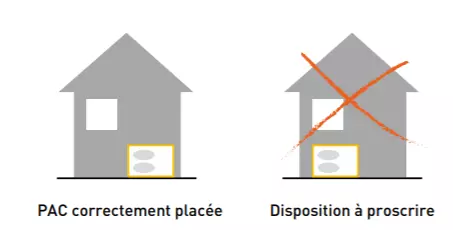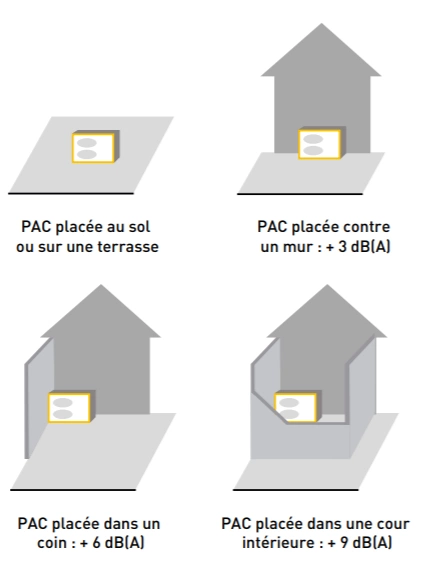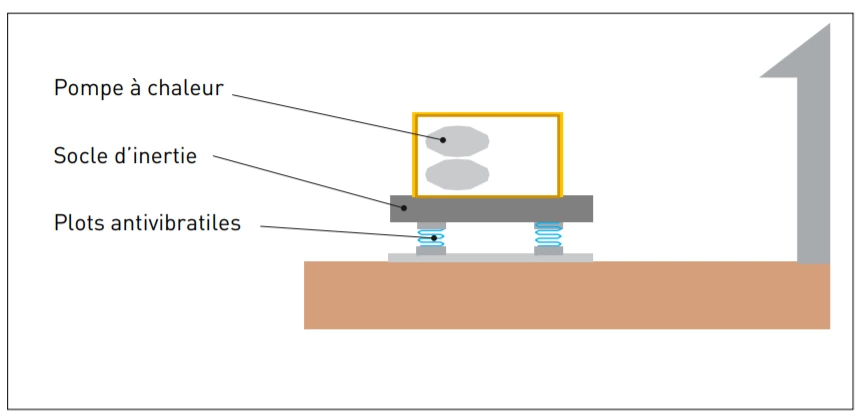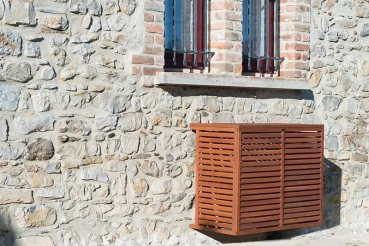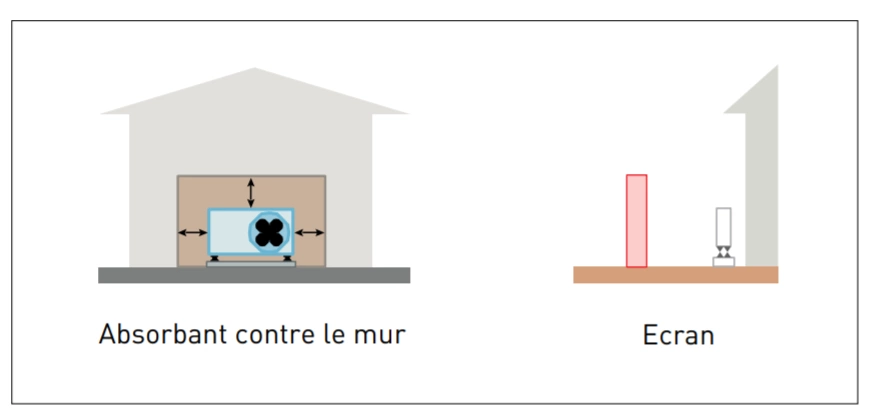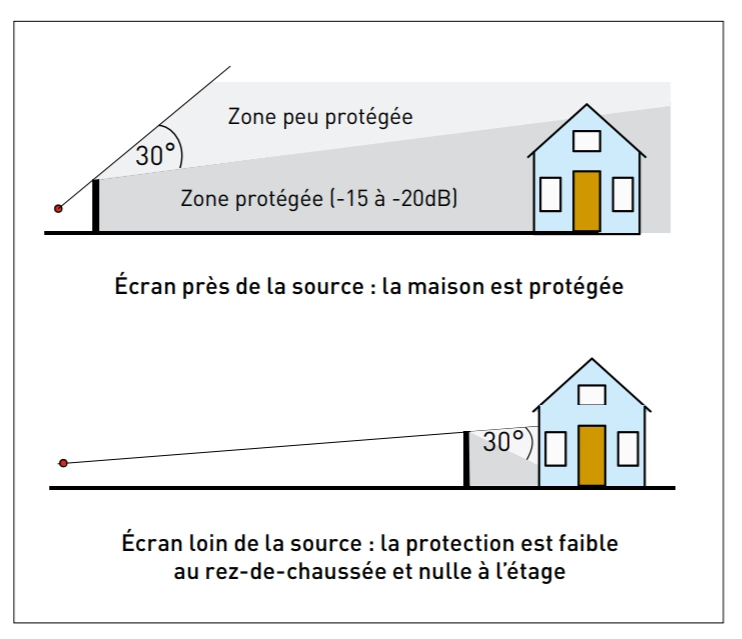Another way to reduce the noise pollution generated by an air conditioner is to install a noise barrier or wall. But here again, it is necessary to pay attention to the quality of the installation and to take account of the configuration of the premises.
The first thing to know is that not all materials have the same properties in the fight against noise . Must be distinguished :
- Absorbent materials, such as expanded wood, plastic foams and glass or rock wool. They reduce the rebound of noise on the walls and avoid the resonance box effect.
- Insulating materials, such as concrete or bricks. They prevent the transmission of noise through the air
- Resilient materials, such as felt, cork, rubber. They prevent the propagation of vibrations
Ideally, a perfectly insulating wall should combine these 3 materials and offer a high density of material. In reality, the cost of such a wall is generally prohibitive...
Depending on the configuration of the premises (air conditioning glued to a wall or placed in an interior courtyard, etc.) and the type of main nuisance generated by the air conditioning (vibration or fan noise, etc.), screens or walls with different virtues are often used.
In addition, it must also be taken into account that the wall must be made of a material suitable for outdoor installation.
The second thing to keep in mind is the preferred location for the noise barrier relative to the location of the air conditioner.
If you are bothered by the noise of your neighbor's air conditioning, your first intention might be to install the noise barrier near your home. However, as seen in the diagram below, the insulating panel should actually be located closest to the noise source in order to protect the widest area.
Tips and maintenance to reduce noise pollution
An air conditioner must be maintained regularly to prevent noise pollution from increasing. The filters can become clogged with an accumulation of dust, leaves can interfere with the operation of the ventilation... It is therefore advisable to carry out maintenance on your air conditioner every year.
If you have the impression that the noise of the air conditioner has increased lately it may be due to one of these causes:
Vibration noises:
Parts may have come loose and are causing vibration noises.
While the air conditioner is running, put your hands on the grille of the device: if the noise changes, tighten the screws on the frame of your air conditioner.
You can do the same with the different parts of the device to identify if certain parts have a "play" that generates a specific noise in order to neutralize it.
Hissing or scraping noise:
If your reversible air conditioning whistles or makes a grinding noise when you turn it on, this may be due to a defrosting problem. This is normally done automatically, but if you hear a hissing or rubbing noise, we advise you to start a manual defrost by leaving the appliance unplugged for several hours in order to melt any ice that may have accumulated on the 'evaporator. Like a freezer!
If despite this the noise persists once the device is reconnected, then it is advisable to call a professional to repair the device because a part must have been damaged at the level of the motor or the fan and it will have to be replaced.
Noise in the pipes:
As with a fridge, the refrigerant that circulates in the pipes, compresses, expands, and can generate noises (hissing, cracking, gurgling, etc.). These noises are normal, but if their intensity bothers you, contact a refrigerant specialist to fix the problem.
How to reduce the noise of a portable air conditioner?
There is no shortage of solutions to reduce the noise of the outdoor air conditioner. On the other hand, they are more limited to limit the noise pollution of a monobloc air conditioner installed inside the home.
It is therefore important to consider the criterion of decibels from the purchase even if it means increasing the bill a little.
Once the mobile air conditioner is at home, you can still act to a certain extent by installing the one-piece air conditioning unit on an anti-vibration base and regularly checking the tightness of its screws to prevent vibration noise that could arise. .



